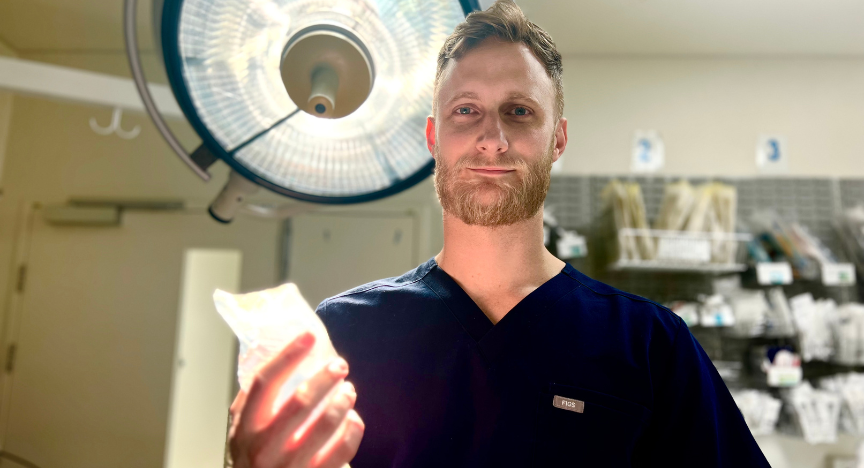
Southeast Queensland Emergency Departments (ED) are seeing an alarming increase in GHB intoxication-related presentations, warns Australia’s first Toxicology Nurse Practitioner, Benjamin Learmont of Princess Alexandra Hospital.
Data shared from PA Hospital’s Clinical Toxicology Unit has confirmed a staggering fourfold increase in GHB-related ED presentations over the past 24 months, calling for greater public awareness of the drug’s harmful short and long-term effects.
“Over the last two years, we have seen GHB-related presentations increase from five a month to the equivalent of almost one per day,” reveals Benjamin, who is responsible for monitoring toxicology-related presentation data.
Gamma-hydroxybutyrate (GHB) is an illicit recreational drug that acts as a nervous system depressant, producing feelings of euphoria, relaxation, sociability and an increased sex drive.
Common side effects of GHB include vomiting, irregular or shallow breathing, hallucinations, blackouts and memory loss, and in some cases, death.
While long-term data is limited, reported long-term effects include dependence, heart disease, severe memory issues, extreme anxiety and breathing problems.
Commonly used as a party drug, GHB has gained popularity over the past two years, with the largest demographic of users aged 18-25.
With the Toxicology landscape constantly evolving to respond to new designer drugs like GHB, Benjamin says staying ahead of the curve is vital to keeping the community safe.
“As of June 2024, PAH data shows that GHB-related presentations are now the second most common recreational intoxication causing people to need emergency care, behind methamphetamines,” he explained.
“Also, GHB now accounts for 24 per cent of emergency presentations related to drug-use that require admission to our Intensive Care Unit (ICU) at PA Hospital.”
Benjamin says public awareness and education is more important than ever to prevent a fun night out from becoming a tragedy or a life-long struggle with heart, lung or mental health issues.
Background:
Benjamin Learmont is Australia’s first Nurse Practitioner (NP) for Toxicology, officially taking on the credential in February 2024. As the first NP for the specialty, Ben is able to develop the role in Toxicology based on his extensive exposure to Emergency nursing, research, clinical innovation including the development of a protocol-based phone app used by nurses which is improving safety for patients presenting with complex toxicology issues.
Ben’s role within PA hospital’s Toxicology Unit is to treat poisoned patients presenting to the ED. This includes deliberate self-poisoning, accidental poisoning, recreational substance misuse and abuse, occupational exposure and envenomation.